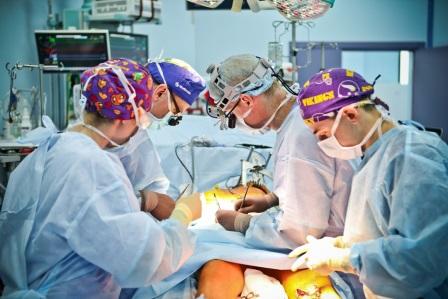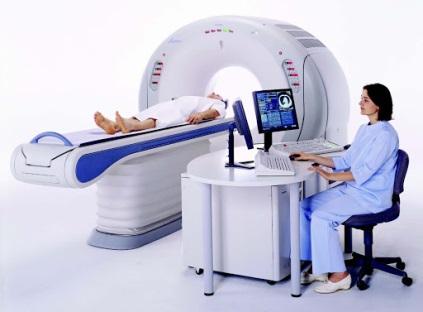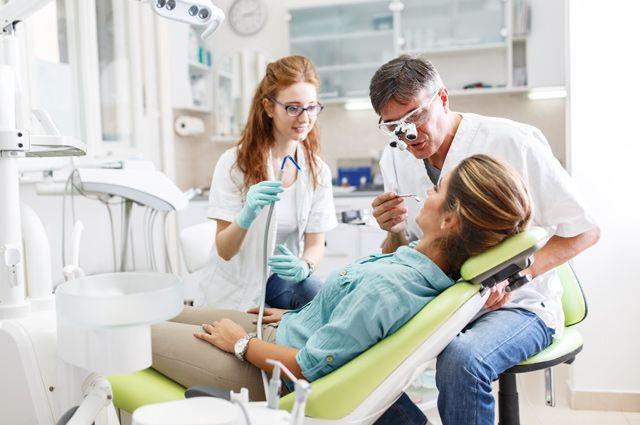1. Read the text and do some exercises.
UK Health Service
The National Health Service provides free treatment for people living in Britain and gives emergency treatment for visitors. The greater part of the cost is met from taxes taken from people’s wages. People also pay some money every month as a sort of insurance.
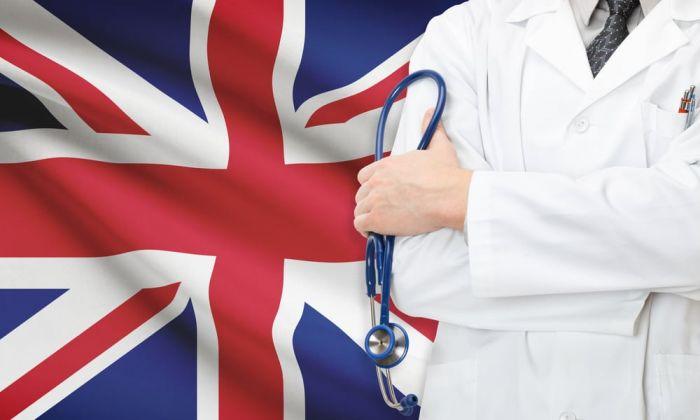 The National Health Service consists of three main parts: the general practitioners, the hospital and specialist services, and local health authority services. Local health authorities are responsible for medical education, hospital building, environmental health, vaccination service and so on.
The National Health Service consists of three main parts: the general practitioners, the hospital and specialist services, and local health authority services. Local health authorities are responsible for medical education, hospital building, environmental health, vaccination service and so on.
The centre of National Health Service is the general practitioner (GP). Each person is registered with a certain doctor in his or her area. The GP diagnoses, gives medical certificates, prescribes medicines. Dentists and opticians usually have separate clinics. They are not parts of health centres.
There is also a medium-level hospital staff. District nurses give injections, physiotherapy exercises at people’s homes. Ward nurses take care of the ill in the hospital.
Regular medical inspections are held at schools. Children receive various vaccinations and are examined by different specialists. There also exists a school dental service in every school.
Much attention is paid to the educational programmes. The Department of Health provides anti-smoking education programmes, alcohol education programmes, cancer prevention programmes and so on. Much attention is paid to the AIDS and drug programmes.
Great Britain pays much attention to the qualification of doctors. They are trained at 16 universities. Besides, they get practice during their work at teaching hospitals.
a) Based on what you’ve read and the Wikipedia article (https://en.wikipedia.org/wiki/National_Health_Service), draw up a diagram describing the UK healthcare system.

TAXES


NHS






…
…
…
……..
b) Read the interview of Lenta.ru with former NHS director Chris Bourne (https://lenta.ru/articles/2020/02/12/nhs/). Fill in the following table (in English!):
2. As you learned from the text above, the general practitioner plays a major role in getting primary health care in the UK (as well as some Commonwealth countries and the US). For Russia, this is a novelty, we are used to resorting to the services of a therapist, and it often seems to us that these two doctors are doing the same thing. Read two Wikipedia articles (https://en.wikipedia.org/wiki/General_practitioner; https://en.wikipedia.org/wiki/Internal_medicine) and make a table or diagram showing the main similarities and differences between them.
3. Study “Health System” vocabulary and do some exercises below.
a) Match English phrases in this dialog with their Russian translation:
| 1 | A: Hello! What seems to be the problem? | А | А: Хорошо, вот ваш рецепт. Вам следует наносить мазь три раза в день. |
| 2 | B: Hello! I have a nagging pain in my left arm and my wrist is swollen. | B | А: Ну, это не перелом. Вы всего лишь растянули запястье. |
| 3 | A: When did the symptoms start? | C | В: Нет. |
| 4 | B: About two hours ago and it still hurts. | D | А: Ладно, я хочу отправить вас на рентген. |
| 5 | A: Can I have a look? Please, roll up your sleeve. Does it hurt when I press here? | E | В: Хорошо, что вы мне посоветуете? Не могли бы вы выписать мне что-нибудь? |
| 6 | B: Yes, it hurts. | F | В: Спасибо большое! |
| 7 | A: Well, I want to send you for an X-ray. | G | А: Могу я взглянуть? Пожалуйста, закатайте рукав. Вам больно, когда я сюда нажимаю? |
| 8 | B: OK. | H | В: Да, больно. |
| 9 | A: Well, it’s not a fracture. You have only sprained your wrist. | I | В: Около двух часов назад и до сих пор болит. |
| 10 | B: Ok, what are your recommendations? Could you prescribe something? | J | А: Я собираюсь наложить повязку и выписать вам противовоспалительную мазь. У вас есть аллергия на что-нибудь? |
| 11 | A: I’m going to apply a bandage and prescribe you some anti-inflammatory ointment. Do you have any allergies? | K | А: Когда симптомы впервые появились? |
| 12 | B: No, I don’t. | L | В: Хорошо. |
| 13 | A: OK, here is your prescription. You should apply your ointment three times a day. | M | В: Здравствуйте! У меня ноющая боль в левой руке, и мое запястье отекло. |
| 14 | B: Thank you very much! | N | А: Здравствуйте! Что вас беспокоит? |
| 15 | A: You are welcome! | O | А: Пожалуйста! |
b) Put the phrases in the correct order to make a dialogue:
|
| A: When did you notice the symptoms? When did the symptoms start? |
|
| B: I’m taking aspirin. |
|
| B: About two days ago and it still hurts. |
|
| A: Did you take any medicine? |
|
| B: Month ago. |
|
| A: How long did the symptoms last? For how long have you been feeling ill? |
|
| B: Only at night. |
|
| A: When do you have the symptoms? |
с) Using these dialogues as examples and the phrases in the glossary, make your own short dialogues about a doctor’s appointment.
4. Read the dialogue below. There is a question there that would never have been asked in a British or Russian clinic. Guess which country is mentioned in the dialog. Why did you decide so?
A: Hello! I would like to make an appointment with a doctor, please.
B: Hello! Do you need urgent care? What seems to be the problem?
A: Yes, I do. I have a terrible pain in my left arm and my wrist is swollen.
B: Do you have private medical insurance?
A: Yes, I do.
B: Ok, I can fit you in today at 3 p. m. Does that suit you?
A: That’s great, thank you.
B: Ok, I will write you in for today at 3 p. m.
A: Thank you for your help!
5. Read the text and the Wikipedia article (https://en.wikipedia.org/wiki/Health_care_in_the_United_States) and do some exercises below.
Healthcare in the USA
Each American wants to have a good health. Everybody knows that Americans are a very healthy nation. They do not only do many sport activities, but also consult a physician in time.
No matter if they have a splitting headache, a sore throat, backache or pain in the stomach, they always call a doctor in order to avoid serious consequences. The doctor usually prescribes medicine and puts on medication.
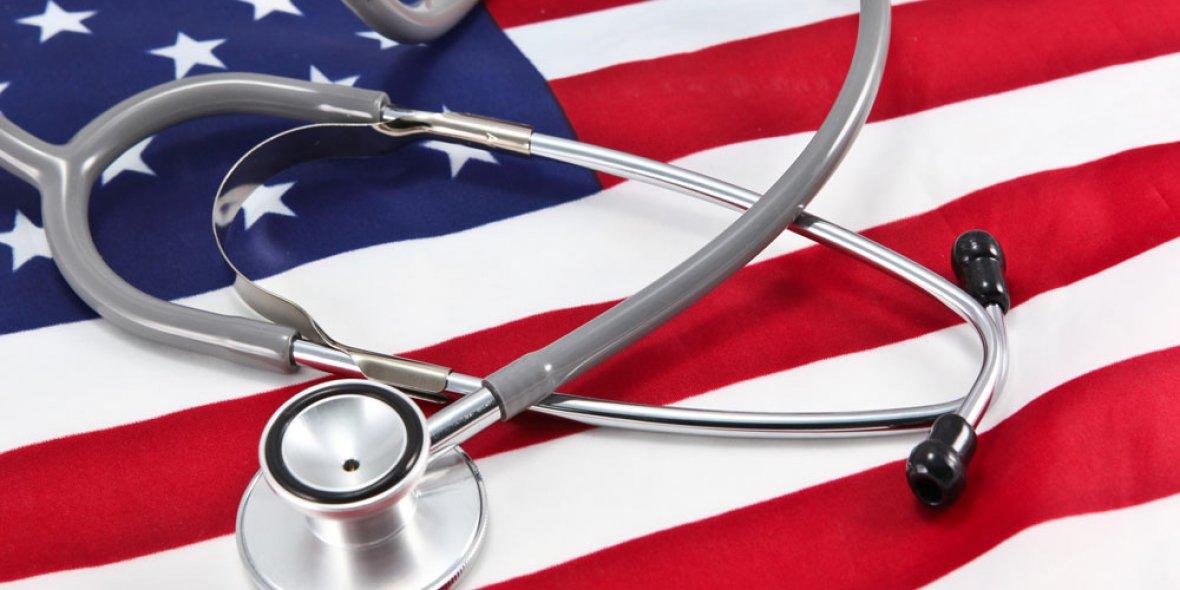 The USA has a health care system of high quality. You should be aware that the majority of medical institutions belong to businesses and different organizations in the private sector, and the American nation owns only a fifth of American hospitals.
The USA has a health care system of high quality. You should be aware that the majority of medical institutions belong to businesses and different organizations in the private sector, and the American nation owns only a fifth of American hospitals.
Medical insurance in the USA comes from different sources such as social insurance, private insurance and social welfare that is funded by the government. Some state organizations offer free health insurance and some health care centers charge fees for treatment. The costs can be high, if medical centers are equipped with modern equipment and give high-quality medical services to all people.
Americans need to get high-quality health care services, and the USA do provides a strong health system.
a) Here are some facts and some people’s opinion about medical care service in the USA. Which of the following statements are facts and which are opinions?
I think that in many ways it’s a wonderful system but in many other ways it’s a catastrophe.
The USA is one of the most developed countries in the world but it doesn’t provide healthcare for all.
Medical care is not free but many hospitals provide some free or low-cost care for those who can’t pay.
The USA has no public healthcare service so most people have private health insurance.
America with its private insurance-based system spends 14 % of GDP on health. Britain with its popular state-funded NHS spends only 7 %.
There are people who receive medical care through social programmes. They are Medicare, which is intended for people over 65 and the disabled, and Medicaid, which is available for the poor.
They say that when the world’s rich want the best treatment money can buy they usually go to the USA. Small wonder, most new medical techniques and technologies become available in America before anywhere else.
Self-employed private physicians receive a fee for each patient’s visit but some medical doctors are on a salary.
b) Discuss in pairs or groups.
Exchange your opinions on the matter
| 1 |
| 2 |
| I’d rather pay a lot of money for insurance, but I will receive high-quality medical care from highly qualified specialists. | 
| I will wait for medical assistance for months and will not be sure of its quality, but I will receive it for free. |
6. Read the snippets that describe a piece of the reality of the US health care system. Match them with posters of famous TV series about doctors.
| 1 | America is renowned for its highly trained medical professionals. The selection for the profession of a doctor begins at school, because you have to get high scores in the final exams in order to pass an incredibly high competition at the medical school. The training itself is very expensive. In addition, the study load for a medical student is much higher than for a typical student. In internship it grows even more, especially when it comes to the specialty of a surgeon. The competition among interns is unusually high, because the places for residency are even less than for internships. You must not only master the practical skills, but also constantly deepen the theoretical ones in order to impress your mentor and successfully pass the final test. But despite all this, the interns have time for a stormy personal life, which often involves the doctors of the clinic where they are trained. | A | 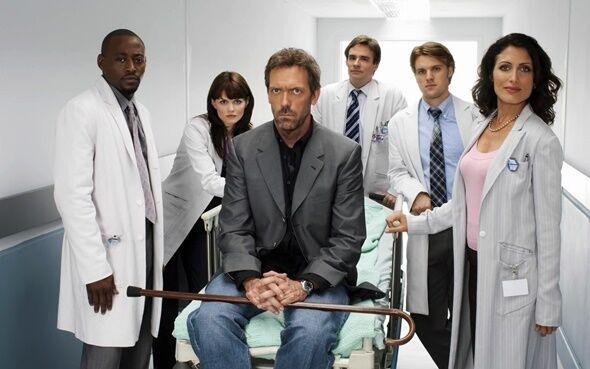
|
| 2 | The GP must have a vast range of knowledge, much more than the therapist. In exceptional cases, such doctors become world-renowned diagnosticians. Differential diagnosis implies a close examination of diseases with similar symptoms, which ultimately should lead to the setting of the only probable diagnosis. In this process, the doctor and the patient should act as equal partners, but this often does not happen, because patients withhold from the doctor part of the information about their lives, believing that it is not important for the diagnosis. As the main character of the series says, "Everybody lies!" He is generally very rude and straightforward with patients and their relatives (his second favorite phrase is "The patient is an idiot"), but at the same time he copes with his duties brilliantly. With all his behavior, he raises an interesting problem: what is more important: when the doctor is polite to you, but can do nothing to help you, or when he is rude, but can save your life. | B | 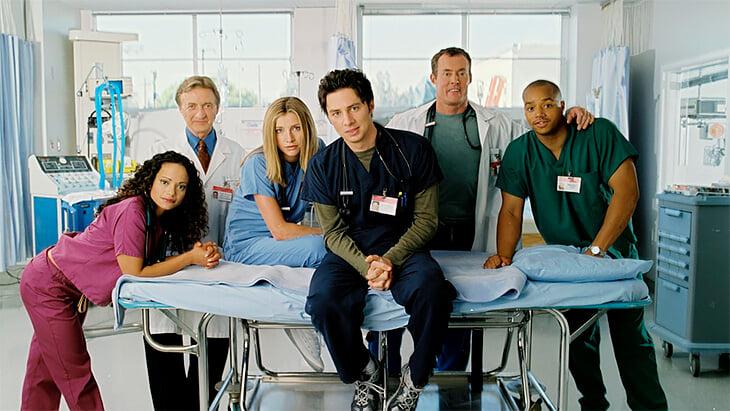
|
| 3 | The work of doctors in an American clinic is very intense: they, for example, not only carry out planned and unscheduled operations, but also receive patients (in America there are no polyclinics we are used to). Doctor shifts often last 72 hours. Salvation in such a situation can be humor. This series is a mixture of drama and comedy (like life itself), but, of course, the second component prevails in it. In a sense, this is just a series about young (and not so young people) who work, relax, fall in love, break up, have children and do other things that make up the life of most of us. There is little evidence of medicine itself, but a lot of ethical issues related to it are raised. And, of course, this is a storehouse of very bright and memorable quotes (to be honest, each episode is one big bright memorable quote). And the soundtrack for the series is awesome. | C | 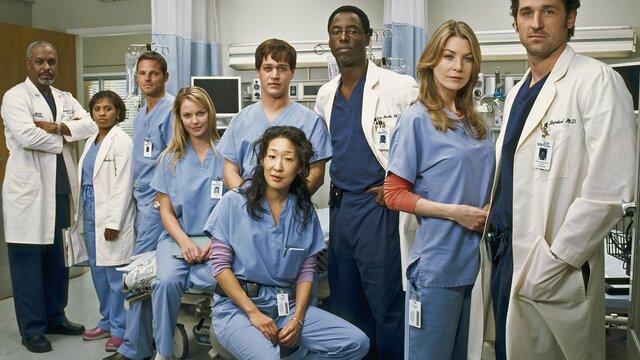
|
1







 The National Health Service consists of three main parts: the general practitioners, the hospital and specialist services, and local health authority services. Local health authorities are responsible for medical education, hospital building, environmental health, vaccination service and so on.
The National Health Service consists of three main parts: the general practitioners, the hospital and specialist services, and local health authority services. Local health authorities are responsible for medical education, hospital building, environmental health, vaccination service and so on.




 The USA has a health care system of high quality. You should be aware that the majority of medical institutions belong to businesses and different organizations in the private sector, and the American nation owns only a fifth of American hospitals.
The USA has a health care system of high quality. You should be aware that the majority of medical institutions belong to businesses and different organizations in the private sector, and the American nation owns only a fifth of American hospitals. 